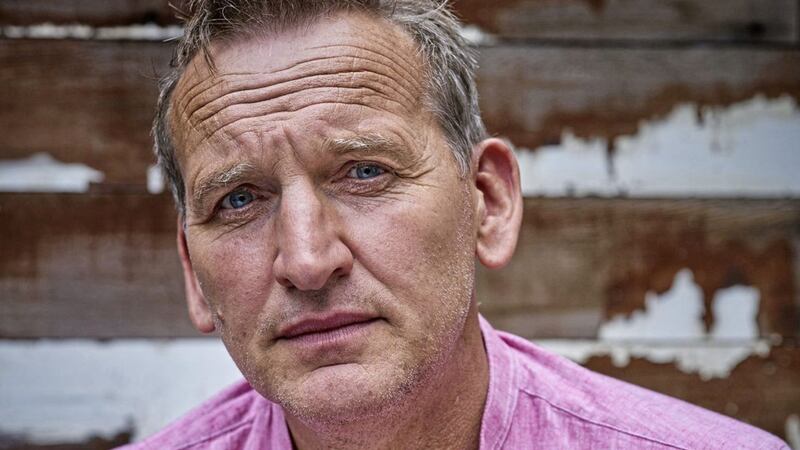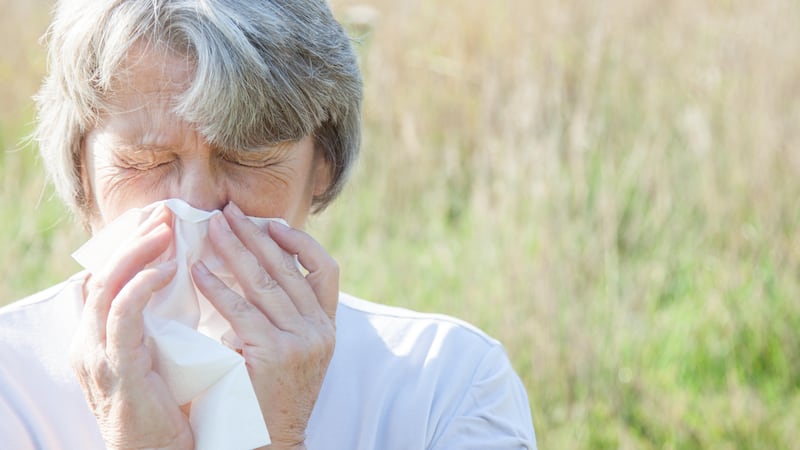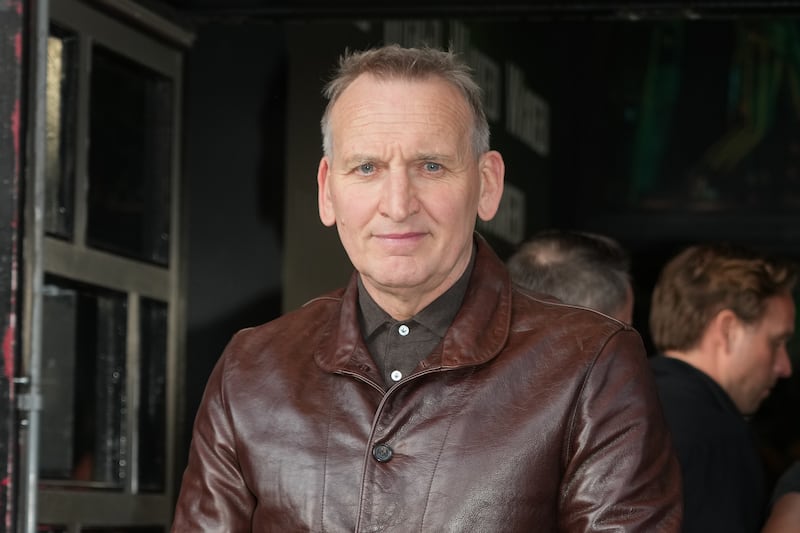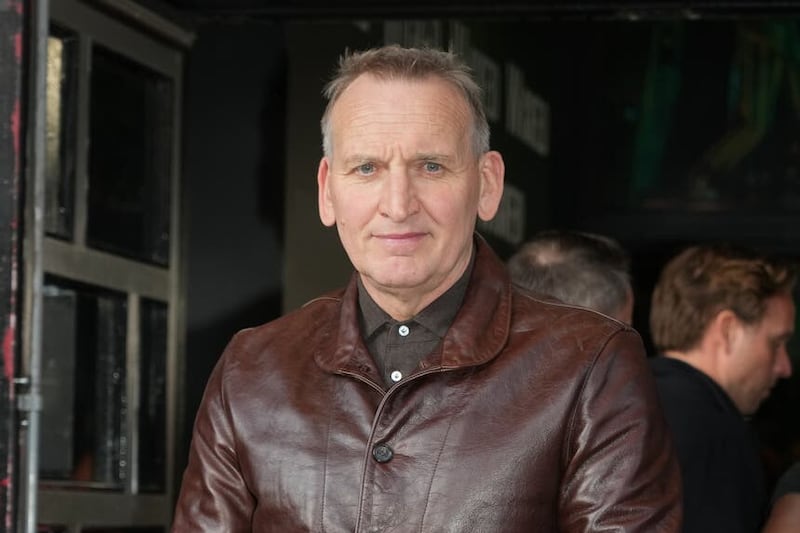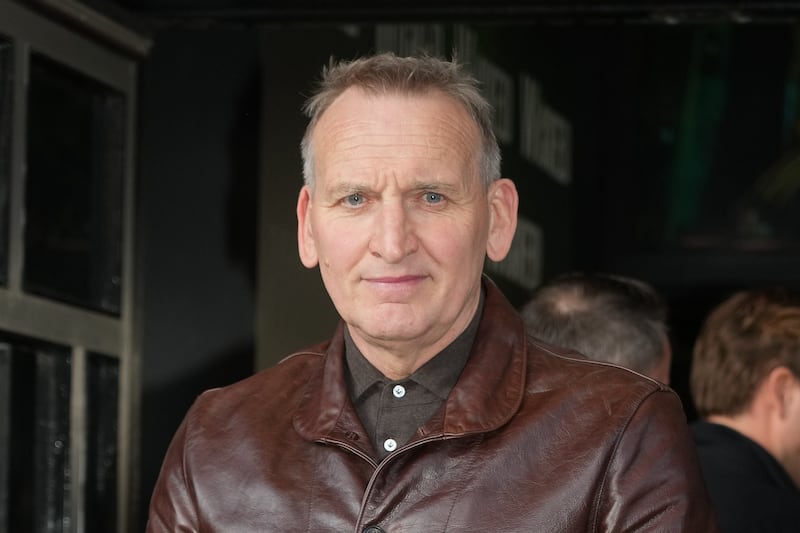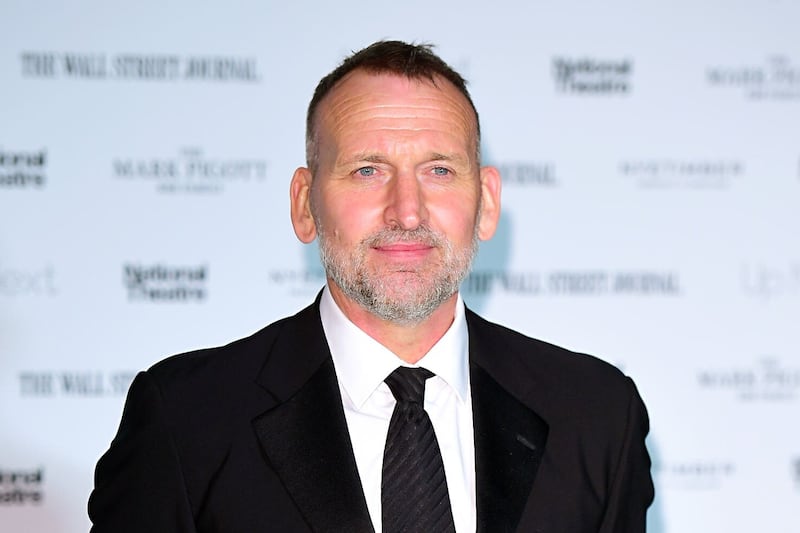CHRISTOPHER Eccleston greets me warmly, ready for the inevitable questions over his revelations that he has had anorexia and body dysmorphia for most of his life, suffered a breakdown and had suicidal thoughts just a few years ago.
There's an honesty and candour about this striking, charismatic actor, an inner calm and not a whiff of defensiveness as he explains why he's made his traumas public knowledge in his autobiography and homage to his father, I Love The Bones Of You.
"The anorexia, for instance – I've got to 55, I've lived what many people would regard as a very successful life. What I'm concerned about is 11 and 12-year-old boys and girls who may run into that particular condition.
"If they see that this apparently successful person has struggled with it, I'm hoping it will make them feel a little less isolated and a little more inclined to talk about it, because I never felt I could."
Today the Lancashire-born actor, who has just finished filming the third series of The A Word and has over the years starred as a plethora of colourful characters, from TV's Nicky Hutchinson in Our Friends In The North to Shakespeare's Macbeth with the RSC, looks fit and well as he tucks into a healthy-looking Japanese salad of raw fish, edamame beans and seaweed.
Yet to understand the person, you need to understand where he came from and the influence his parents, Ronnie and Elsie, have had on him. The book particularly examines his relationship with his late father, whose life often mirrored and defined his own highs and lows.
Growing up in working class family in Salford, Greater Manchester, the young Christopher adored Ronnie, a stacker-truck driver in the local Colgate Palmolive factory, whose generation of men kept their gentler emotions to themselves to stop appearing vulnerable.
However, Ronnie had a darker side. Bright but unfulfilled and frustrated, from a generation of men who suppressed emotion, his inner rage would bubble to the surface when he got home, mood swings ever threatening.
"There was a period when I was older, just short of my teenage years, when, so intense was his rage, my nervous system, my animal self, thought he might kill me," Eccleston writes.
"He wouldn't hit me, there was never a belt or anything like that. He rampaged around, and that was worse. His rage was so deep and so consistent, so fierce, it traumatised me."
Initially Eccleston – and to some extent his older twin brothers Alan and Keith – would tiptoe around just trying to make their dad feel happier, while his mother, Elsie, remained reliable, gentle and unchanging.
"When I saw my father's unhappiness, I wanted to make him better. Dad couldn't manage his emotional life enough in front of his children, but I lay no blame at my father's door for that because society said to him, 'Be a man, be angry, be repressed, be confrontational'," he says now.
"Had he been provided with therapy, he would have done with it what I've done with it, and more. I feel to a certain extent, and not in a negative way, that I'm living a life for him."
Amid his father's mood swings and rages, there came a point where the young Christopher dug his heels in, taking control of the one thing he could control – his intake of food.
"My dad's family were poor and food was very scarce. I remember my dad saying to me, 'All I can remember, Chris, is being a hungry b******'.
"As a young boy I had issues with the way my dad wielded authority. This would be concentrated around the dinner table. And, as I've done throughout my life, if I have an issue with authority I f****** defy it."
Other traumatic trajectories followed. Father and son both had breakdowns when aged 52. After punching a disrespectful co-worker, Ronnie was given time off, put on tablets and some time later was made redundant and never recovered mentally; Christopher was in the throes of divorce (from his wife Mischka), traumatised over leaving his young children, living out of hotel rooms, suicidal but lucid enough to admit himself into a psychiatric hospital.
He was put on lorazepam and, incredibly, the former Doctor Who managed to finish filming the second series of The A Word, supported by fellow actor Pooky Quesnel, who plays comical granddad Maurice's love interest Louise in the series.
When filming wrapped, Eccleston headed straight back to hospital and later checked himself in to The Priory in Altrincham, Cheshire, where he remained for nearly three months. It would be another three months before he saw his children again, in an emotional reunion.
Albert, now seven, and six-year-old Esme, were the catalyst for his recovery, he recalls, after his consultant told him gently of the legacy he would create for his children, were he to end it all.
"He wasn't severe about it. The legacy would have been, 'Daddy didn't love us enough to hang around'. I thought it was beautiful morally and practically for him to say that to me. Children can help you see your worth. They gave me a perspective."
Today, he's still on anti-depressants although he's hopeful that won't be forever.
"The biggest thing about my breakdown is that it's made me much stronger – and I don't think it's the anti-depressants that are talking to you now. It's me."
He lives for his children, he beams.
"I drive Albert and Esme mad with kisses – but they love it. When they're with me, they clamber all over me – it's monkey love. My dad wanted to do that but society wouldn't let him. But he managed it when he read Black Beauty to me or Huckleberry Finn. It was rare but it was so potent."
He continues: "I don't have as much time with the children as I think we all need but that's a bigger question for the legal system."
He says his eating has improved massively and he exercises well but still has body dysmorphia issues.
"I eat very healthily now, I enjoy my food and I can laugh at myself. But in my darkest moments when I'm tired I will obsess about my physical appearance and of course I'm in a profession which magnifies that."
How does he feel now when he looks in the mirror?
"Dissatisfied. I see imperfection. I see massive room for improvement and because of my industry I see jobs slipping away. It's so deeply ironic that a man should be talking like this because if a man's talking like this, God knows what it's like for my female contemporaries who went into acting."
He continues: "It took me until I was 55 to not feel ashamed of being vain and caring about my appearance. It seemed emasculating. I was bred to be an alpha male. I don't want to be seen as effeminate which is horrific – the best side of my masculinity is the feminine side of it. But now I recognise it as a part of my brain."
His father died in 2012, more than a decade after being diagnosed with vascular dementia. In the latter years, when clarity was fading, there was a rare fleeting lucid moment when he told his youngest son, 'I love the bones of you', hence the title of the book.
"My father loved me. When he said, 'I love the bones of you', he was saying his goodbyes."
:: I Love The Bones Of You by Christopher Eccleston is published by Simon & Schuster, priced £20.
